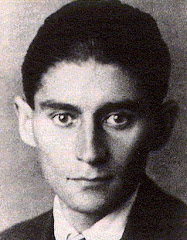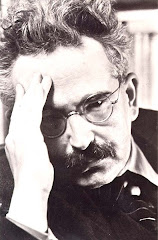Once there was a kingdom that had everything one would expect a great kingdom to have—soldiers, artisans, farmers, merchants, poets, philosophers, doctors, and priests. The kingdom was large and its land flowed with milk and honey. It had no walls, because it had no enemies to fear. But the kingdom lacked its namesake; it lacked a king. Of course, this had not always been the case. There had once been a king who had made the kingdom great. But he had vanished long ago. Nobody could even remember a time when they had seen him.
Despite the king’s mysterious disappearance, however, the kingdom managed to retain itself, to preserve order and law. For the king, though he had disappeared, was careful enough to have left behind a will instructing the inhabitants of his kingdom how to behave until his return. In his will, the king commanded his people not to take any king in his stead, but to be patient and to wait for his return. The king wrote in his will that he was embarking on a journey to find the most incredible scepter in the world, one that he had only imagined, but one that he was positive existed. The king explained that though he loved his people very much, he had to search for the scepter. In fact, it was because he loved his people that he sought the scepter. For the king believed that the scepter possessed special healing powers that would not just improve his kingdom, but would perfect it. He believed that the scepter could give sight to the blind, cure the ailing, raise the downtrodden, beautify the ugly, repair the crippled, and awaken the dead, and that anyone who held it could communicate with the animals and the trees of the earth as well as see into the secret motivations of men.
The king explained in his note, that although he already possessed a scepter made of the greatest gold and jewels, the scepter he sought was invisible. This was why he was disappearing. He thought that if he too became invisible that he would enter into the invisible realm in which he would be able to see the things that are often present, but always unapparent to the visible eye. The king explained that he was not leaving his kingdom, but only his kingdom as it appeared. He was not journeying into far away lands, but was simply traveling deeper into his own land.
Though the people continued to live in peace and were generally well provided for, they missed their king, without whom they felt uncomfortably ungrounded and unbearably at risk to the slightest changes. The people lived in fear not of an enemy army, but of a slight gust of wind, sweeping up their kingdom like a feather. Without their king, the people felt as if they were living in a kind of fairyland that was not real, but simply a story made up by a storyteller to communicate a point or a moral to his eager listeners. The people could not bear the loss of their king. But more than that, they could not bear the uncertainty of their loss. For if the people believed their king to be dead or long gone, never to return, they might consider moving on with their lives, and seeking a new king. But the king’s note bore on them as a torn garment of a kidnapped girl might bear on her parents. They simply could not give up hoping that their king would return.
They didn’t even think to hope that he would return with the magic scepter. For the people believed that even if the scepter existed in an invisible realm, it may as well not exist, since, its powers could only be garnered by touching it, yet as it was invisible, it was also untouchable. But more than this, the people hated the scepter, which they blamed for the king’s disappearance. The scepter was, to them, a delusion, a myth, that had seduced the king away from his kingdom and was keeping him hostage. Many of the people believed that the king had found the scepter, but that he didn’t want to give it up by returning to the visible world.
Seconds turned to minutes, minutes to hours, hours to days, days to weeks, weeks to years, years to decades, decades to centuries, and centuries to millennia, and yet the king’s people waited. Over the course of their waiting, their customs had changed some and their interpretations of the king’s disappearance had expanded and become more complex and creative, and conflicting. Some people thought that the king’s message had to be decoded; others believed that the king meant exactly what he said. Some believed that the note was a forgery and that the king didn’t even speak the language the note was written in. Others saw the note as something whose truth couldn’t be explained but whose power came from chanting it over and over again. Many people lived their lives according to their interpretations; many lived antithetically to their interpretations. But all conceded the importance of the king’s note to some degree or another.
One day, while the farmers were harvesting in the fields, the priests were preparing an afternoon sacrifice, and the poets were scribbling verses in the mud by the river banks, the earth began to quake and crumble. The earthquake was so powerful that everybody lost consciousness for a second and the entire kingdom was swallowed by the earth. When the people regained consciousness, tossed up onto mountains which had once been below ground, they could see a scepter of dust and clay emanating from a smoky fissure that was running through what had once been their king’s throne. The scepter levitated into the air and opened its mouth as if to speak. But words did not come out. Only a moan, the kind a woman makes when bringing life into the world. The people, too, out of some kind of impulse began to moan, and the earth, too, as if somehow their efforts might enable the scepter to divulge whatever tremendous thing lay inside of it. After much moaning, moaning which sounded both like the kingly muscle-flexing of a roaring lion and the humbled lamenting of a creature who has lost everything, the scepter, exhausted, fell to the ground. Out of its mouth poured the long lost king, naked and emasculated, but smiling and luminescent.
The king, holding the neck of his original golden scepter, stooped down to pick up the earthen scepter out of which he had just spilled forth. The king then planted each scepter beside him upright into the ground until each had turned into a tree. He then proceeded to build up his kingdom, entailing the help of all. Instead of building his kingdom in the shape of a circle as it had stood before, the king designed his kingdom in the shape of an ellipse with the two scepters turned trees as the foci. Pleased and exhausted with all that he had done, the king fell asleep…
Thursday, June 26, 2008
Subscribe to:
Post Comments (Atom)






No comments:
Post a Comment